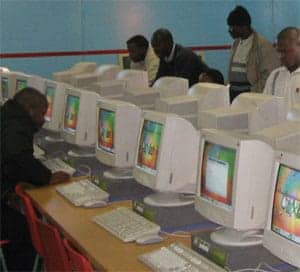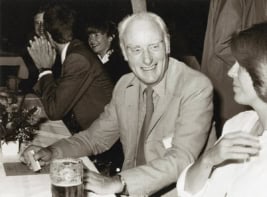An educational centre in Cape Town shows what can be done to boost science in Africa

Physics, like Physics World, is an international endeavour. In this age of rapid global communication, it is essential for all physicists to know what their colleagues around the world are doing. No physicist could possibly build a successful career by only talking or listening to people in their own country. From CERN’s Large Hadron Collider to the ITER fusion experiment, and from blogs to online journals, physics is a truly global subject.
Imagine, then, that you are a bright, young physics student in Africa. Your university probably has only a couple of full-time physics professors, and they are unlikely to have ever met the leaders in their field. Internet connections are unreliable and you are physically and intellectually isolated from the rest of the world. Hampered by poor tuition and with few career prospects, many African students not surprisingly head to the West as soon as they can.
The African Institute for Mathematical Sciences (AIMS) in South Africa, however, offers a lifeline to many of the continent’s best young minds (see p10 print version only). Since it was set up in 2003, it has proved outstandingly successful, providing intensive postgraduate tuition to over 170 physics and maths students covering everything from astrophysics to quantum information. The hope is that the graduates will use their scientific know-how to boost the continent’s languishing economy.
AIMS is a shining example of international co-operation in science: lecturers are hand-picked from a pool of over 300 academics around the world who have expressed an interest in teaching at the institute. For the students at AIMS, who are desperate to become part of the international scientific community, that contact with the best minds in science is a chance of a lifetime. There are now ambitious plans to set up a network of such centres across Africa. But physicists from the West need to do far more to help scientists in Africa, although that is easier said than done. Corruption is rife, while travel is difficult and expensive. Still, progress is possible: one Irish physicist has developed a simple and cheap technique to purify drinking water using sunlight that has recently secured funding from the European Union (see p11 print version only). His contribution is an example worth following.



